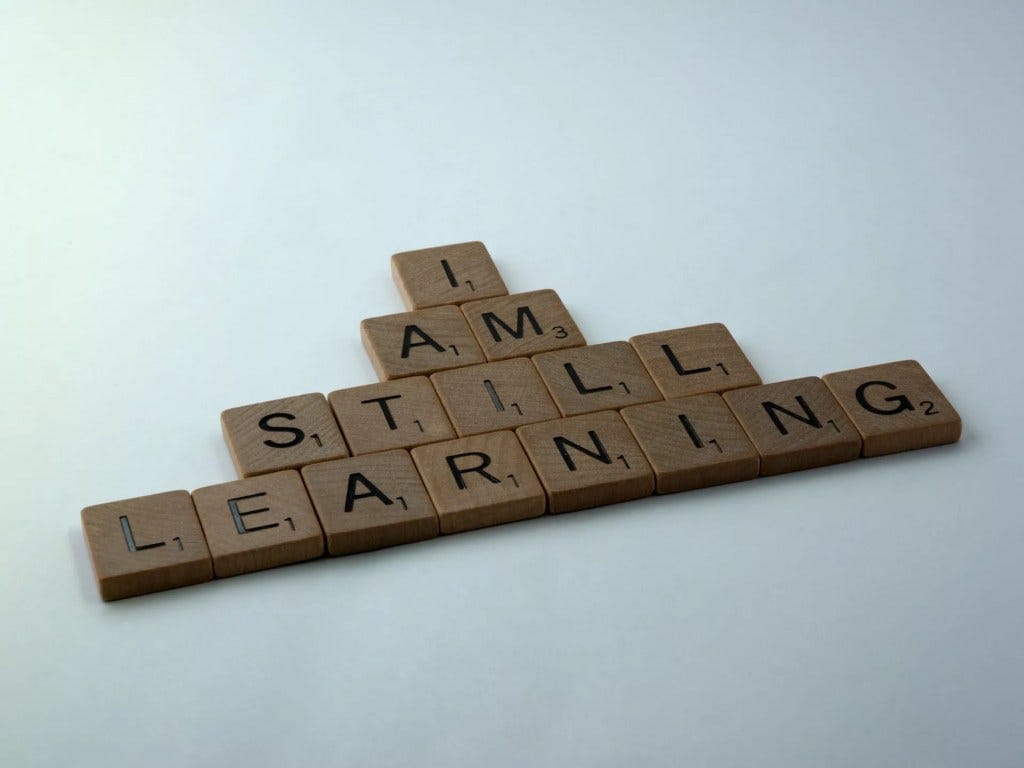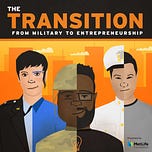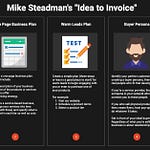The following is a guest post that comes to us by way of Dev Chandra, A Navy Veteran and Founder of Process Hacker, which helps businesses unleash their productivity through strategy, structure, and systems.
Dear Bunker,
“You are what you eat.” This phrase typically refers to the food we consume. However, you are also the knowledge you consume. In his book, Entrepreneurial Leap (book summary), Gino Wickman claims that you need to continuously learn to succeed in business.
There is a lot of information out there, so you need to sift through the noise and figure out what works best for you and your business. To help your quest for knowledge, this post provides 10 ways to learn and grow as an entrepreneur:
Read Nonfiction: Read at least one book per month. Then, check out our book summaries to find your next read.
Read Biographies: Occasionally, check out books containing the stories of the most successful entrepreneurs.
Listen to Podcasts: Listen to interviews, talk shows, and educational segments, which can be done during mindless activities.
Watch Educational Videos: Check out online videos on leadership, motivation, entrepreneurship, and business.
Read Business Blogs: Read about business from articles and posts on business websites and blogs.
Connect with Entrepreneurs: Build quality relationships through networking, mentorship, coaching, and masterminds.
Take a Personality Assessment: Learn about your strengths and weaknesses using personality quizzes such as Kolbe A Index, DiSC, Myer-Briggs, etc.
Take Time for Coffee: Spend about an hour per week in a coffee shop to get out of your typical environment, review your work, and work on your business.
Read Inspiration Quotes: Inspire yourself regularly by reading quotes. Check out @theprocesshacker on Instagram for quote posts to motivate you.
Look at Your Bank Balance: Reviewing this metric will motivate you to keep growing your business and income.
Check out audible For more on entrepreneurship, check out Entrepreneurial Leap or our summary of the book. Now, let’s discuss each way in detail.

Read Nonfiction
Many CEOs attribute reading to their success, as it had been said that the average CEO reads about a book per week or 4-5 books per month. However, you should read at least one nonfiction book per month, especially if you are just starting out. Check out the following books with accompanying book summaries to find your next read:
Traction by Gino Wickman (book summary): Helps entrepreneurs implement EOS and the Six Key Components to gain traction and grow their businesses.
Rocket Fuel by Gino Wickman (book summary): Provides a guide for the integral relationship between a Visionary and an Integrator.
Entrepreneurial Leap by Gino Wickman (book summary): Helps one figure out if they are an entrepreneur-in-the-making, take the leap, and become an entrepreneur.
The 7 Habits of Highly Effective People by Steven R. Covey (book summary): Presents a holistic approach for living with principles, pursuing opportunities, and solving issues.
The Lean Startup by Eric Ries: Shows you how entrepreneurs continually innovate to build and grow valuable businesses.
The E-Myth Revisited by Michael Gerber (book summary): Dismantles the myths of starting a business and shows you how to use the lessons of franchising to succeed.
Crushing It by Gary Vaynerchuk: Shows individuals how to grow a personal brand, business brand, or following around your passion.
Essentialism by Greg McKeown (book summary): Teaches you how to discern what is essential, eliminate everything trivial, and execute on what matters most.
Start with Why by Simon Sinek: Claims that what you do in business does not matter, but it is why you do what you are doing.
The 1-Page Marketing Plan by Allan Dib (book summary): Helps you get prospects interested in your offer, get leads to buy, and turn customers into raving fans.
Building a StoryBrand by Donald Miller (book summary): Shows you how to take your customers through their journey to effectively explain what your company offers.
Please note that book summaries are a great way to review what you have read. However, do not just simply read summaries of books as you will not absorb the information. Instead, take time to read, review with a book summary, and apply what you have learned.
Read Biographies
Biographies and autobiographies of successful entrepreneurs provide insight into how these individuals got to where they are in business. Stories illuminate the ideation of the product or service, making tough decisions, scaling their business, handling crises, and solving complex issues. Check out the following book suggestions to learn:
Losing My Virginity: How I Survived, Had Fun, and Made a Fortune Doing Business My Way by Richard Branson: Branson founded the conglomerate of Virgin Group, which consists of companies in commercial aviation, spaceflight, radio, etc.
Elon Musk: Tesla, SpaceX, and the Quest for a Fantastic Future by Ashlee Vance: Elon Musk founded and is the CEO of space transportation corporation, SpaceX, and electric vehicle company, Tesla.
Thrive: The Third Metric to Redefining Success and Creating a Happier Life by Arianna Huffington: Huffington founded The Huffington Post and Thrive Global.
Shoe Dog: A Memoir by the Creator of Nike by Phil Knight: Knight founded and was the CEO of Nike, the world’s largest supplier of athletic apparel and shoes.
The Everything Store: Jeff Bezos and the Age of Amazon by Brad Stone. Jeff Bezos founded and was the CEO of Amazon, which is a huge online marketplace and cloud computing provider.
Option B: Facing Adversity, Building Resilience, and Finding Joy by Sheryl Sandberg. Sandberg was the COO of Facebook, a social networking service.
Steve Jobs: The Executive Biography by Walter Isaacson. Steve Jobs founded and was the CEO of Apple, Inc and NeXT. He also was the primary investor of Pixar.
Listen to Podcasts
Podcasts are series of audio episodes that can be streamed or downloaded to any electronic device for easy listening anywhere. They are typically free and allow you to learn while doing mindless activities like chores, exercising, or driving. Podcasts can entertain but can also teach you about business from interviews, conversational shows, and educational segments. Here are some great podcasts to get you started:
The Jordan Harbinger Show: Host Jordan Harbinger unpacks his guests’ wisdom into practical nuggets you can apply to impact your career, life, and relationships.
How I Built This: Host Guy Raz presents the stories about innovators, entrepreneurs, and idealists—and the companies and movements they built.
The Tim Ferriss Show: Host Tim Ferriss deconstructs world-class performers from all different worlds to dive deep into the tools, tactics, and tricks that listeners can use.
The Multiplier Mindset: Host Dan Sullivan shares his wisdom and insights with entrepreneurs who want to multiply their freedom and success.
Entrepreneurs on Fire: Host John Dumas interviews his business guests to inspire you and ask unique questions that get to the heart of why businesses succeed.
I Love Marketing: Hosts Joe Polish and Dean Jackson discuss actionable marketing strategies about direct mail, email marketing, lead gen, and getting referrals.
Smart Passive Income: Host Pat Flynn interviews marketers, content creators, and entrepreneurs to show proven strategies while telling incredible stories along the way.
The School of Greatness: Host Lewis Howes interviews excellent world-class revolutionaries in business, health, mindset, and relationships.
The Transition: Host Iron Mike Steadman interviews entrepreneurs, especially veterans and military partners, to share stories, provide lessons learned, and give advice.
Watch Online Videos
Video content is becoming very popular as Cisco found that by 2022, online videos will make up more than 82% of all consumer internet traffic. This statistic is an increase of 15 times higher than it was in 2017. Thus, you should probably focus your video consumption on growing your business by watching online content on leadership, motivation, entrepreneurship, and more. Here are some fantastic YouTube Channels to help you get started:
TED: TED stands for Technology, Entertainment, and Design and is a nonprofit devoted to spreading ideas, typically in the format of short, powerful talks.
TEDx: This grassroots initiative of TED allows independent groups to organize local events that bring people together to share a TED-like experience.
Entrepreneurial Leap: Helps you develop clarity around your business idea and create a customized plan to bring your dream to fruition.
GaryVee: Follows the life of Gary Vaynerchuk, the CEO of Vayner Media, who will teach you about branding, marketing, mindset, business, and much more.
Bigger Better Biz: Educates and empowers small business owners like you to grow your business through digital marketing.
Matt D’Avella: Provides documentary-style videos on self-development, habits, productivity, minimalism, and more.
The School of Life: Shares ideas on how to understand yourself better, improve your relationships, reflect on your careers, and deepen your social connections.
Pat Flynn: Teaches you how to make more money in less time by diversifying your income streams and creating passive income.
Valuetainment: Provides entrepreneurs with weekly advice, motivational content, and interviews with unique individuals.
Big Think: Gives expert-driven, actionable, educational content featuring experts ranging from Bill Clinton to Bill Nye to help you get smarter, faster.
Read Business Blogs
Reading is essential, and you can supplement your book reading with business content from websites, blogs, and email newsletters. Email newsletters are particularly significant, as new content gets delivered straight to your inbox. Here are some great places to start:
Foundr: Aims to educate and inspire today’s founders to become tomorrow’s business icons.
Entrepreneur: Provides news stories and content about entrepreneurship, small business management, and business.
Wall Street Journal: Covers breaking news and current headlines from the US and worldwide, particularly regarding business and financial news.
Bloomberg: Delivers business, financial, and markets news, data, analysis, and video to the world.
Morning Brew: This daily email newsletter covers the latest business-related news, especially in finance and tech, in an informative and witty manner.
Tim Ferriss: Features the writings of early-stage technology investor/advisor and the author of five #1 New York Times and Wall Street Journal bestsellers.
Seth Godin: Features the posts on marketing, tribes, and respect from an author that has written over 20 best-selling books.
James Clear: Provides content focused on habits, decision-making, and continuous improvement from the bestselling author of Atomic Habits (book summary).
Connect with Entrepreneurs
You can only learn so much from media, so you should seek out other entrepreneurs and people to take it to the next level. People will motivate, push you, and hold you accountable for the goals that you set. You should build meaningful relationships and surround yourself with entrepreneurs through the following:
LinkedIn: This platform allows you to manage your professional profile, engage with your professional network, and connect with entrepreneurs (connect with me here).
Networking Events: Attend events for business or activities of interest as these provide opportunities to meet entrepreneurs or others who share common interests.
Chamber of Commerce: These local business organizations allow you to get your name out locally, provide networking opportunities, and establish a sense of authority.
Conferences: These events are larger networking events for you to learn about the happenings of an industry and meet with like-minded peers.
Mentorship: In this informal relationship, mentors share their knowledge, skills, and experiences with their mentees to help them develop and grow professionally.
Coaching: In this formal relationship, coaches help clients maximize their performance, work to their full potential, and stay accountable to their goals.
Masterminds: These groups contain people in the same business world who meet regularly, provide updates, and problem solve their work together.
Take a Personality Assessment
Examining your personality will allow you to learn about your Modus Operandi (who you are, how you operate, etc.) and build upon your entrepreneurial traits. There are several great personality tests to help you know thyself:
Kolbe A Index: This test measures the co-native part of your brain, which includes the actions you take resulting from your natural instincts. These instincts are broken down into four action modes: Fact Finder, Follow Thru, Quick Start, and Implementor.
DiSC: This test measures your interpersonal behavior and interaction in terms of four personality styles: Dominance, Influence, Compliance, and Steadiness.
Myers-Briggs: This test draws on your psychological preferences to show how you source energy (extroversion vs. introversion); process information (sensing vs. intuition); make decisions (thinking vs. feeling); and apply structure (judging vs. perceiving).
Culture Index: This test measures how your employees feel regarding working in an organization, including their thoughts, feelings, and opinions on various aspects of work.
Strengths Finder: This tests measures patterns of thoughts, feelings, and actions to identify areas where you or your team have the greatest potential for building strength.
Productivity Type: This test uses your personality to identify methods that help you be more productive out of the following: Planner, Strategist, Connector, and Performer.
In addition, you can learn about Emotional Intelligence (EQ) or work with a therapist:
Emotional Intelligence: This is “the ability to understand, use, and manage your own emotions in positive ways to relieve stress, communicate effectively, empathize with others, overcome challenges and defuse conflict.” Then, you can apply your knowledge to determine how you operate and improve your overall EQ.
Therapy: Working with a therapist regularly enables you to build a relationship with a professional and get direct feedback about yourself. Then, apply what you learn and improve week by week. Check out BetterHelp for an accessible, affordable, and convenient option to work with a therapist online.
Take Time for Coffee
You should regularly leave your work environment to spend an hour in a coffee shop to work “on” and review your business vision, plan, and goals. If you don’t like coffee, you can get tea or some food. Coffee is popular and recommended as it improves your performance, memory, and productivity. Note that coffee should complement other healthy habits and not be a substitute for sleep.
You can take a coffee break to build relationships with others in and out of your business or workplace. For example, get coffee with a coworker or member of your leadership to solve a complex problem or work on your relationship. Also, grab coffee with other entrepreneurs, mentors, or coaches to help you grow in your personal and professional abilities.
Read Inspiration Quotes
Business is full of victories and failures that will test you. The way you feel and think about yourself as an entrepreneur and what’s possible for your business will determine whether you will make it or not. Inspirational quotes can motivate you through the highs and lows, so regularly read quotes. Here are some of my favorites:
Richard Branson: “Whatever your goal is, you will never succeed unless you let go of your fears and fly.”
Oprah Winfrey: “Don’t worry about being successful but work toward being significant, and the success will naturally follow.”
Elon Musk: “When something is important enough, you do it even if the odds are not in your favor.”
Sara Blakely: “It’s important to be willing to make mistakes. The worst thing that can happen is you become memorable.”
Steve Jobs: “Have the courage to follow your heart and intuition. They somehow already know what you truly what to become everything else is secondary.”
Ariana Huffington: “We think that mistakenly, that success is the result of the amount of time we put in at work, instead of the quality of the time we put in.”
Mark Cuban: “It’s not about money or connections. It’s the willingness to outwork and outlearn everyone when it comes to your business.”
For more inspirational quotes to help you learn and grow as an entrepreneur, follow @theprocesshacker on Instagram.
Look at Your Bank Balance
Warren Buffet has said, “The more you learn, the more you earn.” And so, money can be a simple, effective, and powerful motivator to work hard and succeed as an entrepreneur. Thus, you should simply look at the balance in your bank account or use one of the following personal finance applications to help motivate you:
Mint: This free popular application allows you to sync bank accounts and transactions to show you the bigger picture of your account balances, spending, and net worth.
Personal Capital: This free investment-focused application allows you to sync your bank accounts to help you view balances, cash flow, and returns on your investments.
You Need a Budget (YNAB): This budgeting-focused application allows you to sync your bank accounts and create budgets, ultimately giving every dollar a purpose.
Next Steps
I hI hope you can walk away with at least one way from the 10 ways to learn and grow as an entrepreneur. For more from Gino Wickman, check out his book, Entrepreneurial Leap (book summary). Also, you can get more inspiration from our blog post on 50 ways to learn something new.
If you have any further questions or need additional help, feel free to comment below or send me an email. Also, if you want more Process Hacker content, you can subscribe to our short weekly newsletter on Productivity, Habits, and Resources.











